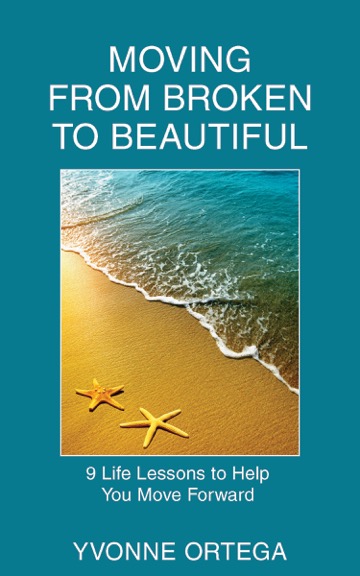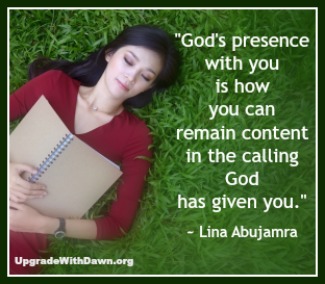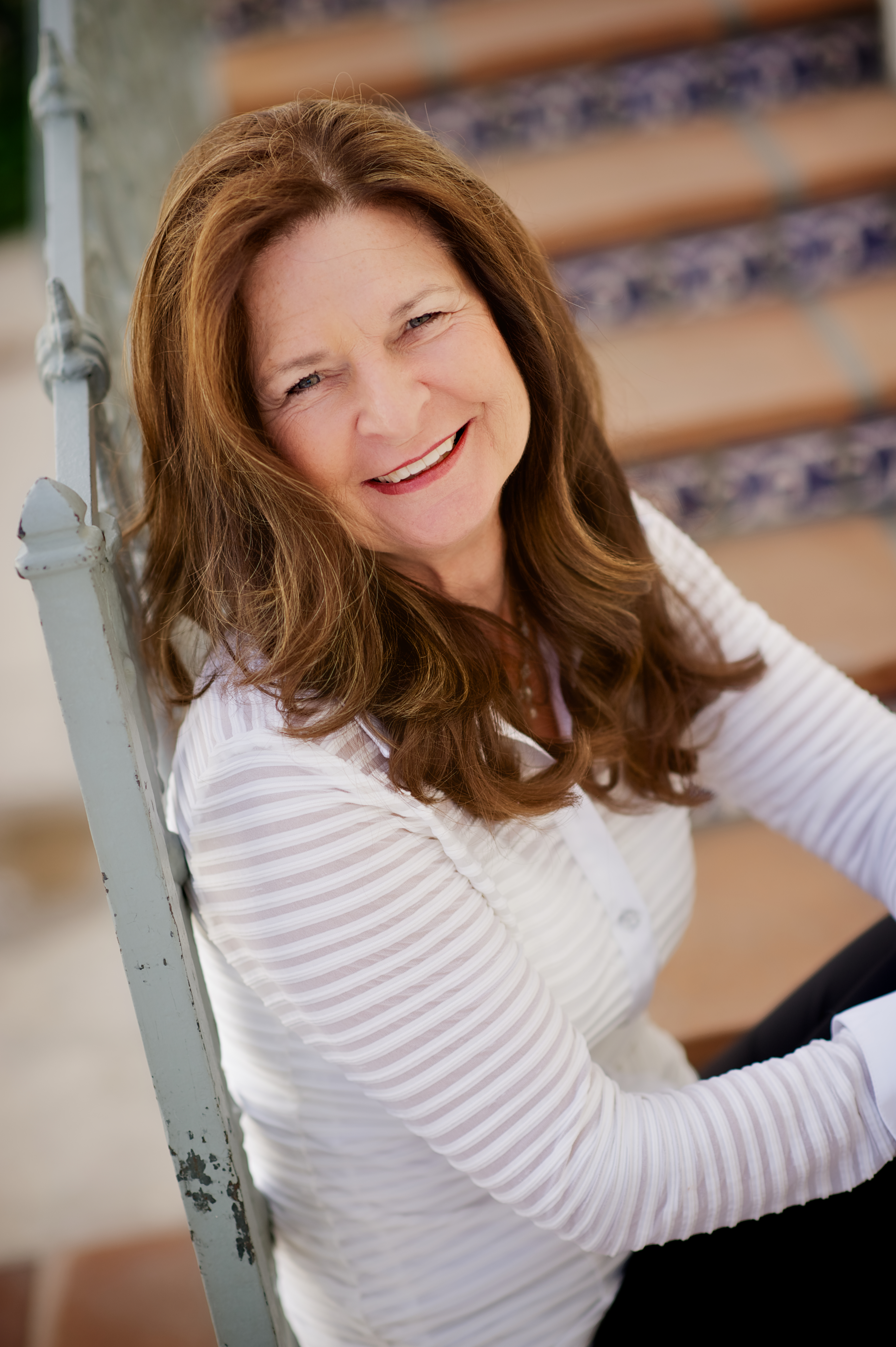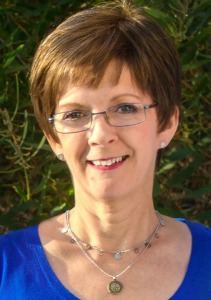When Your Christmas Plans Go by the Wayside
Yvonne Ortega speaks into women's hearts and minds with truth-laced hope. In this Christmas UPGRADE, she encourages those who find this season a bit of a struggle.
“My new oven doesn’t work," Yvonne said. "The picture tube on the television is dying. I have that intestinal virus again, and it’s Christmas time.”
This year because of illness, I (Dawn) have my own list of "wayside plans," but I've been encouraged by Christ-followers who keep pointing me back to Jesus. People like Yvonne.
Yvonne continues . . .
During the Christmas season, I don’t like to rush. That gives me time to enjoy God’s presence and do what I can within reason.
Therefore, after Thanksgiving, I pulled out my planner and scheduled time for writing and speaking projects along with their deadlines.
I also added time for personal tasks, such as decorating the house, sending my annual Christmas newsletter, and Christmas caroling at a local convalescent home.
With my planner in hand, I thought I had everything under control.
I didn’t count on my new oven not working, my new television not being delivered and mounted on the confirmed date, and an intestinal virus hitting me again.
Why did God allow me to spend all that time in my planner when He knew all along what was going to happen?
I’ve learned three things from God’s Word that help me handle the fact that I’m not in charge.
First, I’ve learned that I will finish what I must.
During my quiet time in the sunroom, I complained to my heavenly Father about the oven, the television, and my health. How could I possibly meet ministry deadlines with the chaos in my life?
The Spirit of God within me reminded me of Ephesians 2:10 (NIV), “For we are God’s handiwork, created in Christ Jesus to do good works, which God prepared in advance for us to do.”
God didn’t need my planner and my detailed daily schedule.
God, who prepared good works in advance for me to do, would help me get them done in His perfect time.
Second, I’ve learned to be content with what I have.
- My oven doesn’t work, but the gas stove does.
- I can still cook and warm leftovers on the stove.
- I can heat water for the ginger tea that soothes my stomach.
- The repairman will come to fix the oven.
- I can be content without a television.
- I won’t die because I miss a few movies on the Hallmark American cable television network.
- I have a stack of books to read, electricity, and indoor plumbing.
- Though I don’t yet have a delivery and mounting date for the new television, sooner or later, I will.
Meanwhile, I can meditate on Hebrews 13:5a (NIV), “Be content with what you have.”
That verse is not an invitation, but rather a command.
Third, I've learned to submit to God's will.
My intestinal virus has disrupted my Christmas season. And yet, it pales in comparison to the disruption in the life of Jesus, who left the glory of heaven to be born as a babe in a manger.
Philippians 2:6–8 (NIV) gives me the right perspective on Jesus’ birth. It reads,
“Have the same mindset as Christ Jesus: Who, being in very nature God, did not consider equality with God something to be used to his own advantage; rather, he made himself nothing by taking the very nature of a servant, being made in human likeness. And being found in appearance as a man, he humbled himself by becoming obedient to death—even death on a cross!”
Good would come from obedience to that humble birth.
“For to us a child is born, to us a son is given, and the government will be on his shoulders. And he will be called Wonderful Counselor, Mighty God, Everlasting Father, Prince of Peace" (Isaiah 9:6 NIV).
As a Christian woman living after the death, burial, and resurrection of Jesus Christ, I can call on Jesus any time. He doesn’t have office hours. I can ask him for his wise counsel, power, endurance, and perfect peace. He will listen and understand me.
At the same time, I will submit to God’s will as Jesus did. I will be a servant to my heavenly Father God as Jesus was.
What will you do when your plans go by the wayside at Christmas time?
 Yvonne Ortega walks with a small footprint but leaves a giant imprint in people’s lives. This power-packed package is an award-winning international
Yvonne Ortega walks with a small footprint but leaves a giant imprint in people’s lives. This power-packed package is an award-winning international  speaker and the author of the Moving from Broken to Beautiful® Series through cancer, divorce, forgiveness, and loss. Learn more at www.YvonneOrtega.com. Yvonne’s background as a professional counselor brings a unique perspective into the heart of women. She’s also a speaking and writing coach. Yvonne celebrates life at the beach, where she walks, builds sand castles, blows bubbles, and dances.
speaker and the author of the Moving from Broken to Beautiful® Series through cancer, divorce, forgiveness, and loss. Learn more at www.YvonneOrtega.com. Yvonne’s background as a professional counselor brings a unique perspective into the heart of women. She’s also a speaking and writing coach. Yvonne celebrates life at the beach, where she walks, builds sand castles, blows bubbles, and dances.
Graphic adapted, courtesy of Jess Watters, Plush Design Studio, at Pixabay.
 Post a Comment → Posted on
Post a Comment → Posted on  Tuesday, December 17, 2019 at 8:31AM
Tuesday, December 17, 2019 at 8:31AM  Christmas,
Christmas,  Christmas Chaos,
Christmas Chaos,  Christmas Planner,
Christmas Planner,  Christmas Plans,
Christmas Plans,  Contentment,
Contentment,  Planner,
Planner,  Submission,
Submission,  Surrender,
Surrender,  Upgrade with Dawn,
Upgrade with Dawn,  Yvonne Ortega Upgrade Your Life
Yvonne Ortega Upgrade Your Life  Christmas,
Christmas,  Organization
Organization 










